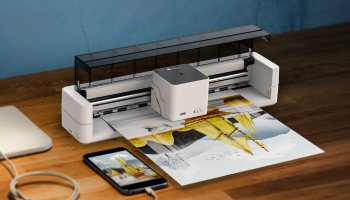I was recently purging things from some old boxes, and found an article I wrote back in 2000 that was published in Staying Abreast – the Newsletter of the Nursing Mothers Network. I was a member of the group years ago, and submitted a story to them about my struggles with trying to breastfeed my first born. They published it in their newsletter. Here is an edited version of it:
I am the oldest of my parents’ seven children, the youngest of whom was born while I was in high school. Over the years, living with younger siblings who were in diapers and breastfeeding, I thought almost every mother breastfed. It wasn’t until I attended a breastfeeding class in the late 90s that I found out how sadly uncommon this wonderful event actually occurs in this country. I learned about all of the benefits for the mother and child that are associated with breastfeeding. I also found out that it’s not always as easy and spontaneous as it looked when my mother did it.
When my little girl was born shortly after the class ended, I did everything I knew how to do to try to get her to nurse. When I didn’t have any success, and the nurses in the hospital couldn’t help out, I contacted a lactation consultant at the hospital and later when we went home. Nothing helped. I cup fed my daughter for a while; then finally gave her the breast milk in bottles with special nipples, while still first trying the breast at the beginning of each feeding. We tried putting the milk in a special bag with a tube attached (the Lact-Aid System), first taped to our fingers and then to my breast. She did drink the milk when the tube was attached to a finger, but not to my breast. I later tried a breast shield in case my daughter just didn’t like the feel of a human nipple. Thinking there might be something wrong with my breasts, I tried breastfeeding (with my sister’s permission) my infant nephew who was a month younger than my daughter. He gave a look as if to say, “I know this is not mommy”, but nursed anyway. I guess it wasn’t me; it was my daughter (who wouldn’t nurse from my sister, either). My daughter was so nipple-specific that she wouldn’t take any pacifier other than the one given to her in the hospital (that’s another story). When nothing was successful and I had to go back to work, I basically decided to give up trying to breastfeed. I figured I’d have to pump at work anyway. So, I continued to pump and feed her expressed milk in a bottle.
I had quite a few interesting experiences while pumping. I found out that there is a cigarette-lighter adapter for some pump models, including the one I was renting – a lifesaver when traveling for extended hours. It was very strange to pump in the car at first, especially at a red light next to a truck. My husband drove in the right lane whenever possible. Once, a pedestrian walked right next to the car. I would love to have read his mind!
I was lucky to produce more than enough milk for my daughter. So much in fact that we had to buy a deep freezer for storing it! At one point, I took a picture of the full, open freezer. I calculated that there were more than 2300 ounces of breast milk in it! I took one of the “got milk” stickers off a banana for the corner of the picture in my photo album. This situation definitely required a sense of humor. I had to expend the time pumping as well as bottle-feeding and washing bottles and pump parts. I was lucky to have an otherwise easy baby.
It’s strange how proud and possessive a woman can be about her breast milk. I compared it to the way a man feels about his sperm count. A weird analogy, but the feeling must be pretty close. I drove everyone in the house crazy with my oddities. I diligently kept records of how much milk I produced each day. My best day yielded 55-1/2 ounces! I still have the charts from more than two years ago.
The most important thing for me was the support of the people around me. From my mother’s example to my sister’s help when she stayed with us for part of the summer – and all of the other people who cheered me on or at least silently tolerated it, I owe many thanks. They helped me give something to my daughter that could come from no one else. Whenever I talk to a pregnant woman, I ask if she plans to nurse and encourage her as much as I can. The benefits to the mother and child just can’t be beat. The physical, medical, emotional, and financial benefits are just amazing (such as the 30 pounds I lost in the first three months of pumping). The benefits far surpass any negative aspects, such as mastitis and occasional discomfort – both temporary and treatable conditions. Also, if social acceptance of nursing increases, any nervousness or embarrassment on the part of the mother should diminish. I wonder how many women fail to breastfeed purely for social reasons. I wish they felt more comfortable and could discover that wonderful experience.
Well, that ‘baby’ is now in college! So much has changed in nearly twenty years, but I remember that time period as if it were “just yesterday”.




Dear Suellen,
I really enjoyed your article about breastfeeding. I have been a maternity nurse for over 25 years and I can truly appreciate the dedication and determination you had to have in order to fill that deep freezer. You should be damn proud of your milk production!
I was also able to read between the lines and I could sense your frustration. To apologize today for your baby receiving a pacifier 20 years ago might not make any sense, but I would like to apologize all the same. I can admit that I have been guilty of such misgivings in the past. Times were different and the education provided to the medical community, as well as the patients, could not compare to all we know and appreciate today. There is still ongoing controversy regarding nipple confusion and it does not occur in all infants, but it can happen. The important thing is that mother’s preferences are more closely adhered to and supported these days.
The promotion of breastfeeding has come a long way and I am happy to report that many hospitals nation wide are working hard at becoming “Baby Friendly” institutions. Breastfeeding initiatives are being embraced by these facilities and more education, for both patients and staff, are being provided.
There is a vast increase in the amount of Certified Lactation Counselors, as well as International Board Certified Lactation Consultants, that hospitals have on staff now. These are dedicated nurses who want to see breastfeeding mothers succeed. The support that is available is astounding. This is a tremendous leap for would-be nursing mothers today.
Your experience provides so much insight and honesty. The rewards of nursing, and the struggles that can be associated with it, are not always discussed in the same article. The reality is that breastfeeding is a commitment. There was obviously no shortage of commitment where you were concerned. Just as important, encouragement and support needs to be provided on the home front. It sounds like you were blessed in that department as well. I am sure it would give you joy knowing how many of my patients (past and present) would benefit from reading your story. Thank you so much for sharing such a personal and inspirational journey with us.
Sincerely,
Melissa M. Mistretta BSN, CLC, RNC.
Melissa, thank you so much for your kind comments! I’m happy you enjoyed my article, and am somehow feeling both proud and humble at the same time that you would like to share it with others.
Thank you also for the apology, although it’s possible she was actually just “tongue tied”, and would have had difficulty trying to nurse anyway. I’m so grateful that my two others were able to nurse – I couldn’t imagine doing all of that pumping with more than one! I also made sure to be prepared the second and third times, and was able to make my preferences known about labor, delivery, and newborn care. I was successful with most of those preferences, too. I was a bit surprised that I sometimes had a bit of a struggle keeping my babies with me – I would have thought with all that nurses have to do that they’d be happy to leave my children with me instead of trying to get me to send them to the nursery!
I thank my mom for being such an amazing role model with the breastfeeding. I saw her doing it all of the time (as the oldest of 7), so there wasn’t even a question about it in my mind.
I plan to write more articles about some of my other experiences. You sound like you also have some interesting stories that others would enjoy reading. It would be great to hear things from your perspective. Are you interested in publishing some of your own stories?
Dear Suellen,
Thank you so much for your reply. I am definitely interested in publishing some of my own stories. Like most people, I have a vast amount of personal experiences of which to draw on as material. Although, when it comes to stories regarding healthcare, I tread lightly as not to step on the wrong toes.
I am new to the writing world and don’t want to come out with guns a blazing or cause dissention between the modalities. The approach to Breastfeeding over the years has taken make forms and I am curious of How it will continue to evolve.
I do want you to know that “rooming in” care with their mother is encouraged and most mother refuse it.
Please feel fee to contact me with any questions and I wil be happy to answer. If I do not have the answer I will get it from a Professor ASAP.
I’m here to help and hopefully to be a regular contributor.
We’re so happy that you want to share your stories with us here at Human Diaries. That’s exactly what we’re all about!